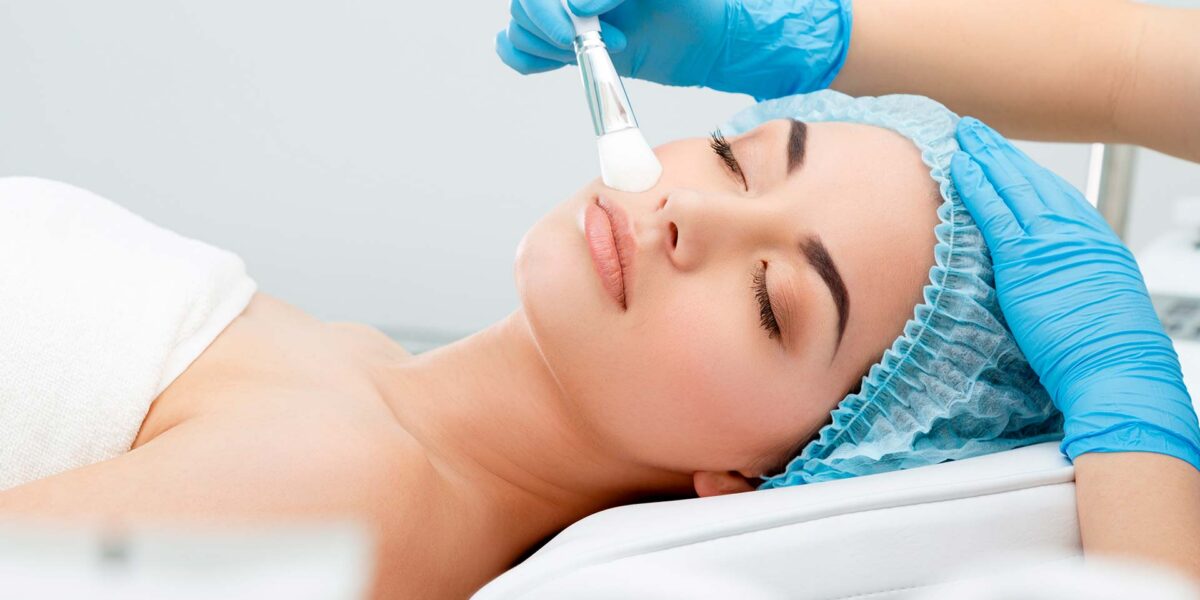In the quest for flawless and youthful skin, various skincare treatments have gained popularity. One such effective and transformative procedure is the chemical peel. This article delves into the fascinating world of chemical peels and how they work to rejuvenate the skin from within. Additionally, we will explore the role of IICAD Bangalore, a renowned training institute, in educating professionals on this remarkable skincare technique.
Understanding Chemical Peels
What Are Chemical Peels?
Chemical peels are non-invasive cosmetic treatments that involve the application of a chemical solution to the skin’s surface. The solution exfoliates the outermost layer of the skin, encouraging the shedding of dead cells and stimulating collagen production.
The Types of Chemical Peels
Superficial Peels
Gently exfoliates the epidermis.
Ideal for addressing minor skin concerns like dullness and fine lines.
Often formulated with alpha hydroxy acids (AHAs) or beta hydroxy acids (BHAs).
Medium Peels
Penetrates the epidermis and reaches the upper dermis.
Effective in treating moderate skin issues such as pigmentation and acne scars.
TCA (trichloroacetic acid) is commonly used in medium peels.
Deep Peels
Penetrates the deeper layers of the skin.
Reserved for treating severe skin conditions like deep wrinkles and significant sun damage.
Phenol is a potent chemical used in deep peels.
The Power of Chemical Peels
Skin Rejuvenation and Collagen Boost
Chemical peels work wonders in rejuvenating the skin by promoting the growth of new skin cells. The exfoliation process removes damaged and dead skin cells, allowing fresh and youthful skin to emerge. Moreover, chemical peels stimulate collagen production, a protein crucial for maintaining skin elasticity and firmness. As a result, the skin appears smoother, tighter, and more radiant.
Addressing Pigmentation Issues
Hyperpigmentation, such as dark spots and melasma, can be frustrating to deal with. Chemical peels are highly effective in reducing the appearance of these pigment-related concerns. The exfoliating action of chemical peels targets the excess melanin in the skin, leading to a more even and balanced skin tone.
Acne and Scarring Reduction
Acne can leave behind stubborn scars that affect self-confidence. Chemical peels, especially medium and deep peels, are valuable tools in treating acne and minimizing the appearance of acne scars. They unclog pores, reduce inflammation, and stimulate skin regeneration, resulting in a smoother complexion.
Combating Signs of Aging
As we age, our skin experiences a natural decline in collagen production, leading to the formation of wrinkles and fine lines. Chemical peels can be a powerful ally in the battle against aging skin. By encouraging collagen synthesis and removing damaged skin layers, chemical peels help diminish the visible signs of aging, promoting a more youthful appearance.
The Role of IICAD Bangalore
As the demand for skilled skincare professionals grows, reputable training institutes like IICAD Bangalore play a pivotal role in providing comprehensive education on chemical peels. IICAD Bangalore offers specialized courses in dermatology and aesthetics, including in-depth training on various chemical peel techniques. Their expert faculty and state-of-the-art facilities ensure that aspiring professionals receive hands-on experience and theoretical knowledge to excel in the field of skincare.
Summary
Chemical peels are a powerful means of rejuvenating the skin, targeting various skin concerns such as pigmentation, acne, and aging. With their ability to stimulate collagen production and promote new skin growth, chemical peels deliver impressive results. If you aspire to become a skilled skincare professional, institutions like II-CAD Bangalore can equip you with the expertise needed to offer this trans formative treatment. Embrace the power of chemical peels and discover the wonders they can do for your skin!

